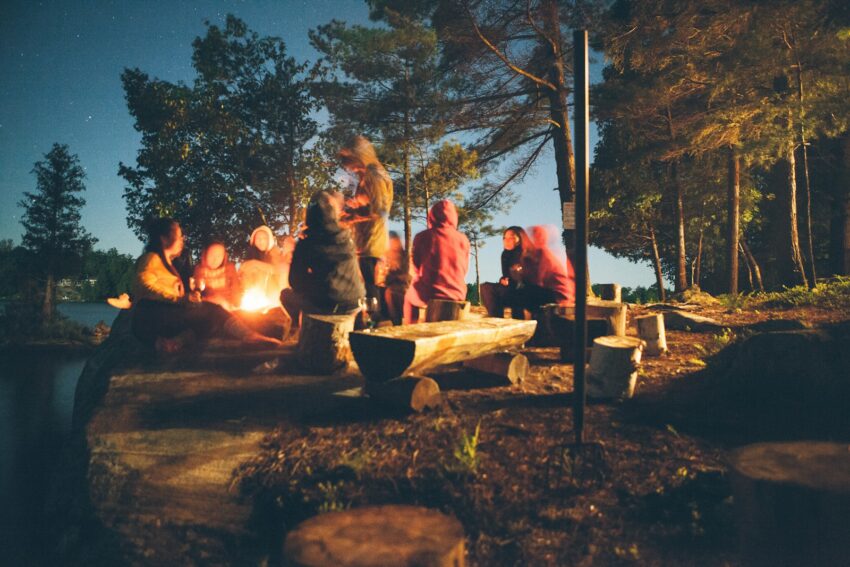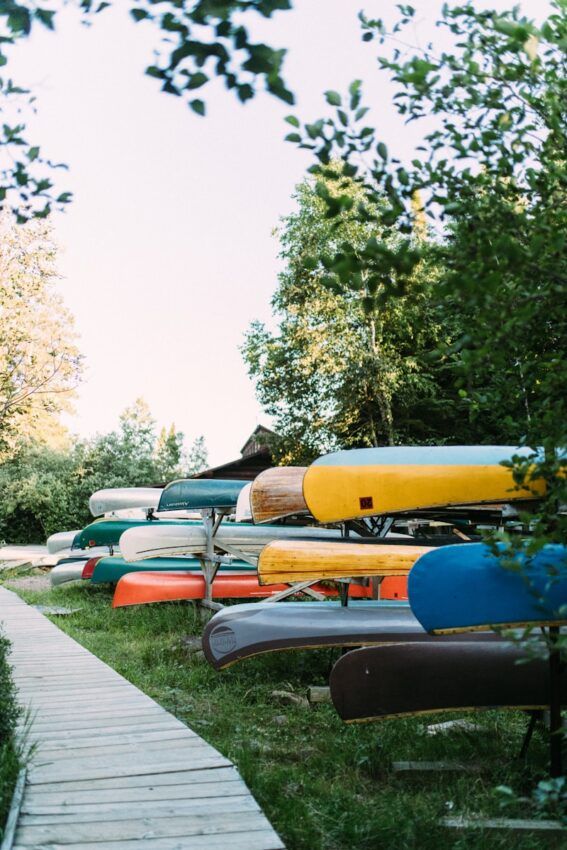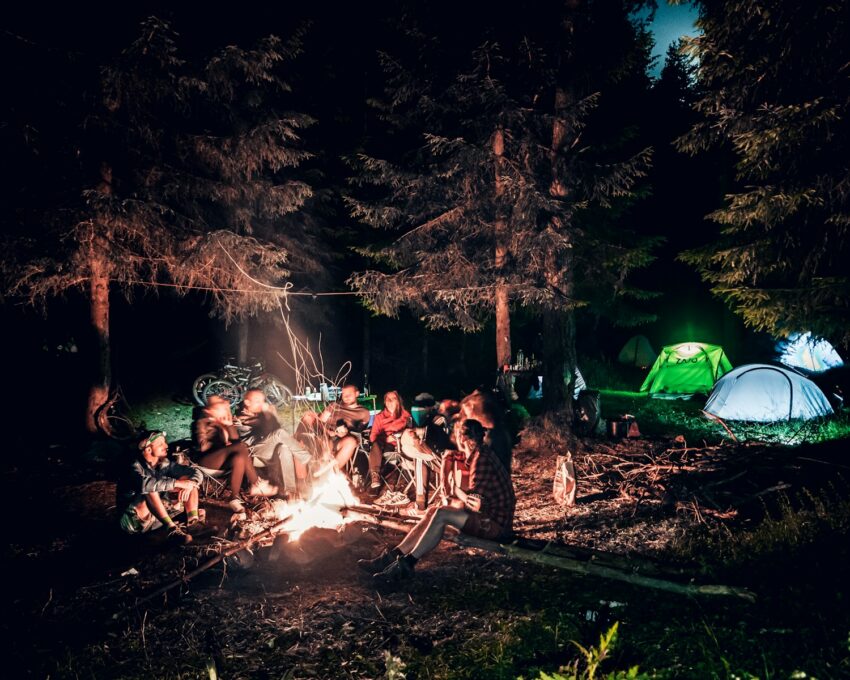For many parents, sending their child to a sleepaway summer camp feels like a monumental leap of faith. You’re entrusting others with your child’s daily care, routines, and social experiences—all away from the comfort and oversight of home. Yet, for countless families, it turns out to be one of the most rewarding decisions they ever make.

More than just a break from the digital noise of our screen-saturated world, camp is a transformative experience. It gives children space to rediscover the joy of face-to-face connection, creative exploration, and independent problem-solving. In the structured freedom of a well-run camp, kids can take safe risks, form authentic friendships, and develop confidence that they carry with them long after summer ends.
A sleepaway summer camp isn’t just a vacation; it’s an environment where personal growth, resilience, and community flourish without the constant hum of technology. It’s not simply time away from home; it’s a step forward.
1. Children Learn Real Independence
At camp, children are placed in an environment where they must rely on themselves and their peers to navigate camp life.
From rising on time to choosing their afternoon activity, each decision without parental input builds confidence in their abilities. Autonomy may feel foreign initially to children, perhaps even a little scary, but it leads to noticeable personal growth by the end of the first week of camp. The majority of campers return home with enhanced confidence in their ability to manage time, navigate age-appropriate challenges, and assertively express their needs.
That liberty is facilitated by an open structure and helpful counselors. Campers aren’t abandoned on their own to figure everything out. They’re encouraged to challenge themselves beyond their comfort zone and meet new surroundings in a safe environment.
When children are taken out of their usual environment, they develop a more internal sense of direction, something that they’ll carry into school life and prove valuable as adults.

2. Camps Offer Children a Unique Social Environment
Unlike school, where social cliques can feel locked in and daily routines can become dull, sleepaway summer camps are an opportunity for children to make new friends.
Campers are typically matched with other children they don’t know, forcing them to establish new relationships on short notice. No cliques to navigate and no historical baggage to lug around during social interactions.
Camps emphasize group participation, giving children accessible and structured opportunities to build teamwork skills through real-world experience. In just a few weeks, they learn to collaborate, negotiate, and support one another. These aren’t lessons from a textbook; they’re shared experiences that help children become more compassionate, well-rounded individuals.
3. Children Unplug and Reconnect with Nature and Themselves
With so much screen time these days, it’s becoming more and more unusual for children to spend a full day without technology.
At camp, however, phones, tablets, and streaming apps are not required. Instead, kids fill their days with hiking trails, paddleboards, talent shows, and midnight campfires.
This digital detox also allows children to find interests that are not algorithmic. Whether through art, sports, or the great outdoors, they start developing a stronger affinity towards activities that are truly reflective of their personality, not what social media or their peers believe they ought to enjoy.
4. Children Learn to Step Outside Their Comfort Zone
New experiences are built into every day at camp. Children are constantly encouraged to reach beyond the familiar.
When a child tries something new and succeeds, the reward isn’t just the activity itself, it’s the pride that comes with knowing they were capable. And even if they fail, they learn how to bounce back. Some camps emphasize resilience by instructing children that failure is just part of the process. In a culture that sometimes idolizes perfection, this can be an important learning.
A prime example is Pali Adventures sleepaway camp, which blends creative and high-energy activities, like trapeze, motorsports, and film-making, with a safe setting that inspires kids to face obstacles without anxiety. The participatory atmosphere of an overnight summer camp offers infinite ways to move out of comfort zones and grow. These experiences prepare children for high school, college, and beyond in ways that few other settings can.

5. Children Develop Skills They Can Carry Into Everyday Life
The activities at camps are designed with purpose. A child might think they’re just learning to climb a rock wall, but in doing so, they’re practicing goal-setting, focus, and persistence. Building a campfire teaches planning. Working in a group builds communication.
Along the way, children become adept at the soft skills that benefit them, both at home and in school. They listen more attentively, lead more effectively, and solve problems in more innovative ways. And because these skills are learned through play and hands-on learning, they last.
Parents often notice changes once their child returns, more willingness to help, improved self-expression, or a greater sense of responsibility. These outcomes aren’t accidental. They’re the product of a purpose-designed experience that leads children forward without dictating ‘right’ or ‘wrong.’
6. It’s a Safe Place to Just Be a Child
Most of all, camps provide children with the very rare opportunity to be children in every sense of the word. There are no expectations, no worries about judgment, and no adult expectations to meet. Instead, there’s a focus on creativity, curiosity, and playing.
This kind of space is essential for emotional well-being. It gives children a chance to let go of daily stress and simply enjoy being who they are.
Most children feel some sense of relief when they arrive at camp. They are able to escape the restrictions that have been placed upon them, whether in school, among their peer group, or even within their own homes. That liberty to be oneself can lead to profound breakthroughs, and it’s perhaps one of the most valuable skills nurtured through the camp experience.
Recognizing the Signs Your Child Is Ready for Camp
If you’re not sure if your child is ready for a sleepaway summer camp, take a look for some telltale signs. Are they looking forward to trying new things? Do they enjoy meeting new friends? Do they want to see how things work outside of routine? If the answer to one of these is a firm “yes”, they may be more ready than you think.
